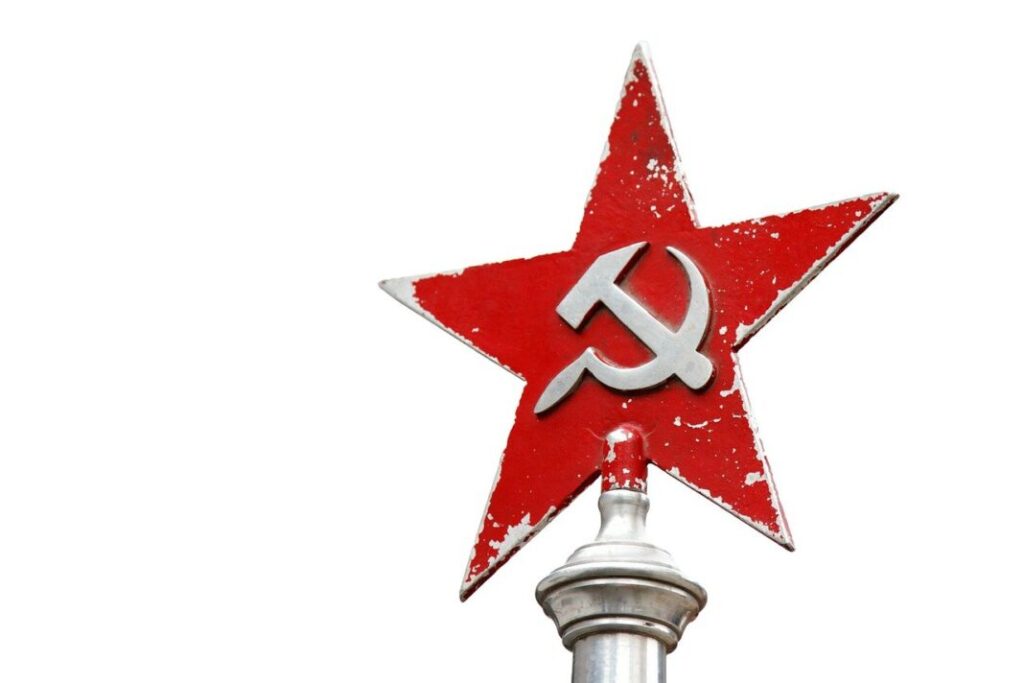Last year, on the Day of Remembrance for the Victims of All Totalitarian Regimes, the government of Robert Golob took a selective approach to condemning totalitarianisms. While highlighting the crimes of fascism and Nazism, the communist regime remained in the shadows. Historians said at the time that this was a deliberate avoidance of confronting one’s own past, since communism was present in Slovenia throughout much of the 20th century and left many victims in its wake. In fact, this behaviour on the part of the government has shown that the government side is not prepared to face up to all aspects of history, which, in turn, leads to further divisions in society. It is to be expected that the government will act in a similar way today. We asked historian Jože Dežman what are the reasons why some people keep quiet about certain totalitarianisms in Slovenia, and what political or social consequences such actions leave behind. Dežman believes that such actions are a dismantling of the rule of law, democracy and the culture of decency.
Last year, on the Day of Remembrance for the Victims of All Totalitarian Regimes, the government of Robert Golob indulged in a major scandal. It wrote that “the Slovenian nation suffered particularly from fascism and Nazism.” But it indifferently omitted communism from its post. This is a continuation of the tradition of denial, concealment and belittling of the massacres, inter-war and post-war killings, the victims of the Barren Island (Goli Otok), the Petriček children’s camp, the Directorate for State Security (UDBA) prisons, the harassment of religious people, intellectuals and dissenters, and the denial of the right to a grave, including to the Roma people who were killed in Iška, at the Žale cemetery in Ljubljana.
In light of all of the above, Jože Dežman said that all of these actions – from the worshipping of Čebine, where the Communist Party of Slovenia was established, to the abolition of the Day of Remembrance for the Victims of Communist Violence, and the contempt for the independence through the abolition of the Museum of Slovenian Independence – all of which we have witnessed during the term of the Golob government, point to an ethical-legal dismantling of coexistence. “We see ignorance, shameless behaviour and disrespect for all the achievements of science and the processes of traditional justice. This is a dismantling of the rule of law, it is a dismantling of democracy and the culture of decency.”
The government divides people into “super-people and sub-people”
Dežman recalled that the first commemoration of Slovenians killed by the communists since 1941 took place in Ljubljana’s Republic Square last year and stressed that the government is doing the opposite of the event’s motto, which is: Because we are human beings. “The government is saying that some of us are super-people, and others are sub-people. This is something that should sound all the alarms for everyone, and something that should be protested and resisted.”
What are the implications of this kind of selective remembering?
This kind of behaviour is also a return to those times when the state behaved like a criminal, when it hid its crimes and when it lied, Dežman believes. “What the ruling establishment cannot grasp is that this ideological/political/cultural strategy did not work even in the days when the government had a one-party dictatorship at its disposal, when there was unity of power and when all the propaganda and other means, including the police, to keep these lies alive were in their hands. And now we live in a democracy, and it is only right that we constantly remind them of their follies.”
The political and social consequences of failing to condemn one of the totalitarianisms
One of the consequences of failing to condemn one of the totalitarianisms that was mentioned by Dežman is the distortion of memory. “If there is no dialogue, there is no democracy, and there is poor coexistence. Instead of healing misunderstandings, they are potentiated.” And the other consequence is that Slovenia is slowly being removed from the circle of Western democracies. “This has already been pointed out in the European Parliament, but apparently, this government simply does not care about these crimes. This is the dismantling of a democratic society”.
Does such government behaviour contribute to perpetuating social divisions?
“Not only does such government behaviour contribute to the perpetuation of divisions, but it also creates a state of permanent civil war,” Dežman was sharp in his criticism of the government’s actions. “They are trying to establish a state of helplessness, as well as the murder of memory. These are the things that exclude Slovenia from the circle of rule of law-abiding and human rights-respecting countries.”
By singling out condemnation of communism, the Golob government is encouraging selective commemoration and helping to perpetuate political divisions. This is, in fact, contrary to the idea of the Day of Remembrance, which is supposed to be an opportunity to address all forms of totalitarianisms in a comprehensive and equal manner, and to heal the wounds of history.
A. G.


